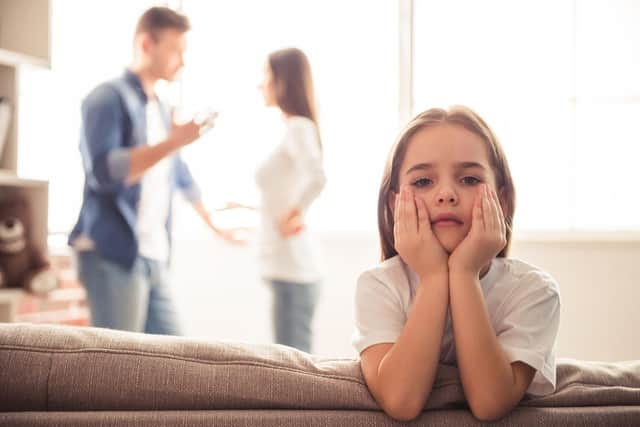Confusion over movement of children between separated parents sparks record Scottish helpline calls amid Covid crisis
Almost 1,000 individuals called for advice to the charity Shared Parenting Scotland in the past 12 months, a jump of nearly a third compared to pre-pandemic times and a 12 per cent increase from a year ago.
The majority of enquiries were related to guidelines about youngsters moving between homes under shared custody arrangements.
Advertisement
Hide AdAdvertisement
Hide AdThis was despite special dispensations set out for families in this situation, allowing children to flit freely between separated parents’ households.


The findings have been revealed in the charity’s latest annual report, which singles out comments by UK minister for the Cabinet Office Michael Gove for adding to misunderstandings “for several months”.
The report states: “One of the most frequent enquiries concerned whether children could still move between the households of their parents.
“The usual answer to this question was ‘yes, unless one household has an infection’. This was thanks to the exemption from the restrictions intended to ensure that children could still see both parents.
“At the start of the lockdown this issue was confused when UK Cabinet minister Michael Gove wrongly said on breakfast TV that children should not be travelling between different houses during the restrictions. The error caused difficulties for several months.
“It was explicit in the regulations from day one that travel for shared parenting was an exception to general restrictions.”
Most calls to the helpline came from parents, mainly fathers, who hadn’t been able to agree on plans for spending meaningful time with their children after divorce or separation.
The charity said the coronavirus pandemic had also sparked an increase in disputes among some separated families, particularly those with existing conflict.
Advertisement
Hide AdAdvertisement
Hide AdIan Maxwell, national manager for Shared Parenting Scotland, said: “It was apparent that Covid encouraged some parents to set aside their previous entrenched positions in the interests of doing their best by their children.
“Unfortunately, many more reported in our user survey that the pandemic was exploited by the other parent, sometimes wilfully and sometimes through unfounded belief that the government had told them travel for shared parenting shouldn’t happen.
“It was also apparent equal parental involvement was one of the first casualties during the period of school closures.
“We continue to work with schools and school parental involvement officers to ensure that equal parenting is essential and not an add-on.
“On our helpline and in support group meetings we always encourage distressed and grieving parents to focus on their children and to try every way possible to defuse conflict and step away from the personal history between them and the other parent.
“Unfortunately there are too many incentives in our family law system to attack and undermine the other parent and too few incentives to co-operate in the interests of their children.”
The charity’s premise is that shared parenting is beneficial for the well-being of children in most cases.
Its annual user survey also revealed “encouraging improvements in the situation of those who responded, such as improved contact with their children, better communication with children and with former partner, and less personal stress and anxiety”.
A message from the Editor:
Thank you for reading this article. We’re more reliant on your support than ever as the shift in consumer habits brought about by coronavirus impacts our advertisers.
If you haven’t already, please consider supporting our trusted, fact-checked journalism by taking out a digital subscription.
Comments
Want to join the conversation? Please or to comment on this article.
